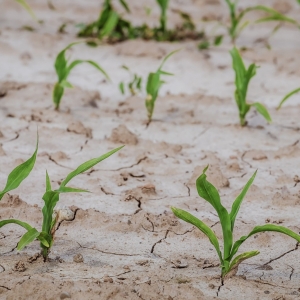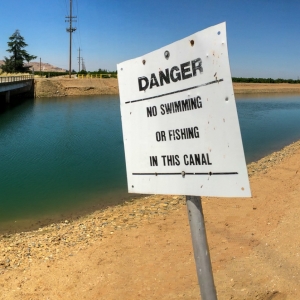Federal Water Tap, August 19: First Mandatory Colorado River Basin Cutbacks
The Rundown
A Bureau of Reclamation reservoir forecast triggers the first mandatory cutbacks in Colorado River water use for Arizona, Nevada, and Mexico. EPA scientists who objected to a Pebble Mine environmental review are overruled by political appointees. The USGS evaluates how concentrated animal feeding operations in eastern North Carolina affect water quality. A California Democrat introduces a carbon tax bill in the House. And lastly, July was the planet’s hottest month on record.
“While we appreciate this year’s above average snowpack, one good year doesn’t mean the drought is over. We must remain vigilant.”– Brenda Burman, commissioner of the Bureau of Reclamation, in a statement announcing the 2020 operating plan for the lower Colorado River basin.
By the Numbers
62.1 degrees Fahrenheit: Global average temperature last month, which makes July 2019 the hottest month ever measured. (Record keeping extends to 1880.) The five hottest Julys have been recorded in the last five years. (NOAA)
News Briefs
Internal Dissent in EPA’s Pebble Mine Decision
U.S. Environmental Protection Agency scientists wanted the Army Corps of Engineers to revise its environmental review of a proposed gold and copper mine in Alaska, but they were overruled by political appointees, E&E News reports.
The agency, in its official comments, did object to the Army Corps’ analysis, saying that the review “likely underestimates adverse impacts to groundwater and surface water flows, water quality, wetlands, fish resources, and air quality.” But the language was less critical than in earlier drafts, according to an agency memo obtained by E&E News and interviews with unnamed EPA sources.
Last month the EPA withdrew an Obama administration veto of the mine, which would be located in the watershed above one of the world’s largest salmon fisheries.
Carbon Fee Legislation
Rep. Jimmy Panetta (D-CA) introduced the Climate Action Rebate Act, a bill that levies a fee on carbon emissions and directs the revenue to a host of programs designed to transition away from a fossil fuel-based economy.
The recipients of funding include: public transit, water systems, ecosystem restoration, technology that pulls carbon from the air. There is funding for job training for workers in the fossil fuel industry and a household dividend that puts money back into the pockets of individuals.
The carbon fee starts at $15 per metric ton in 2020 and rises annually by $15 per metric ton. There are provisions in the bill, based on the emissions trajectory, for raising and lowering the fee.
The bill has one co-sponsor so far.
Studies and Reports
Colorado River Cutbacks
Arizona, Nevada, and Mexico will make the first mandatory cutbacks in Colorado River water use next year following a federal forecast that shows Lake Mead just below the threshold that triggers the new requirements.
The Bureau of Reclamation’s 24-month study projects the elevation of Lake Mead at 1,089.4 feet at the end of the year. Under rules that the basin states negotiated themselves and signed earlier this year, modest cutbacks begin at 1,090 feet, called Tier Zero.
The savings required next year from Arizona and Nevada are in line with conservation measures that the states were already undertaking voluntarily.
The greatest burden falls on the Central Arizona Project, which will shoulder the entirely of Arizona’s 192,000 acre-foot cut. That represents 12 percent of the annual supply for CAP, which delivers Colorado River water to three counties in the state’s metropolitan core. Not drawing that water means less will be available to recharge groundwater and for farmers.
The cuts are “largely equivalent” to the amount of water CAP has been leaving in Lake Mead since 2015, according to Chuck Cullom, Colorado River programs manager.
“In essence, CAP and its water users have been planning and preparing for Tier Zero reductions for the past five years,” Cullom wrote in a blog post.
Nevada will forego at least 8,000 acre-feet and Mexico, 41,000 acre-feet.
CAFOs in North Carolina and Water Pollution
U.S. Geological Survey researchers found correlations between large-scale animal feedlots and water pollution in eastern North Carolina streams. Worse water quality was found in watersheds with a higher density of hog and poultry operations combined with fewer wetlands and more acres on which manure was spread.
The researchers studied 54 watersheds and took water samples in 2012 and 2013. One-third of the watersheds had no CAFOs. One-third had hog CAFOs only, and one-third had both hog and poultry operations.
North Carolina ranks second in the country, behind Iowa, in hogs. As of June, the state was home to 9 million pigs.
On the Radar
Proposed Changes to Coal Waste Rules
The EPA published in the Federal Register its proposal to revamp the rules for reusing coal waste and monitoring for groundwater pollution. Publication opens a 60-day public comment period that ends on October 15. Submit comments at www.regulations.gov using docket number EPA-HQ-OLEM-2018-0524.
Clean Water Act Permitting Public Hearing
The EPA announced a public hearing on its proposal to narrow state review of energy infrastructure under the Clean Water Act. The hearing will be on September 5 and 6 in Salt Lake City. Registration to speak closes on August 30.
The proposed rules allow states to look only at water pollution and not at, say, effects related to climate change. They also limit reviews to no more than one year.
Columbia River Treaty Consultation
The Interior Department will meet with Indian tribes in the Columbia River basin on August 28 and 29 to discuss modifications to the Columbia River Treaty, which Canadian and U.S. officials are renegotiating.
In effect since 1964, the treaty governs the operation of dams in the shared watershed. The treaty originally focused on hydropower and flood control, but negotiators, led in the U.S. by the State Department, are now looking at adding provisions for ecosystems and salmon.
Federal Water Tap is a weekly digest spotting trends in U.S. government water policy. To get more water news, follow Circle of Blue on Twitter and sign up for our newsletter.
Brett writes about agriculture, energy, infrastructure, and the politics and economics of water in the United States. He also writes the Federal Water Tap, Circle of Blue’s weekly digest of U.S. government water news. He is the winner of two Society of Environmental Journalists reporting awards, one of the top honors in American environmental journalism: first place for explanatory reporting for a series on septic system pollution in the United States(2016) and third place for beat reporting in a small market (2014). He received the Sierra Club’s Distinguished Service Award in 2018. Brett lives in Seattle, where he hikes the mountains and bakes pies. Contact Brett Walton






Leave a Reply
Want to join the discussion?Feel free to contribute!